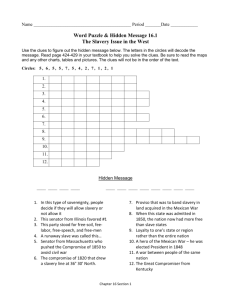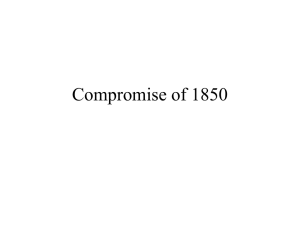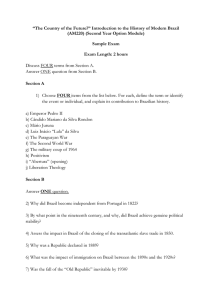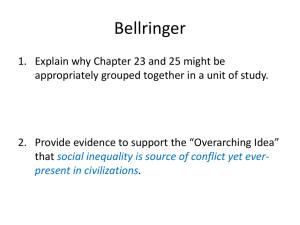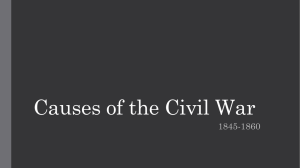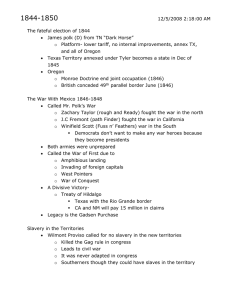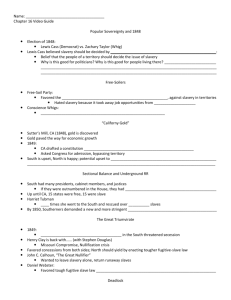Week 7: From the 1840s “Regresso” to Challenges to
advertisement
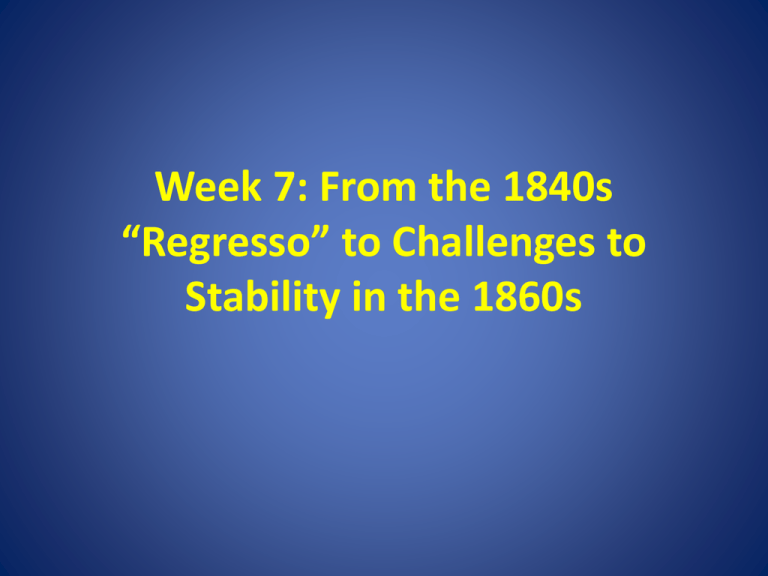
Week 7: From the 1840s “Regresso” to Challenges to Stability in the 1860s “ O regresso” – the return A “return” to centralized rule, away from the liberal experiments with decentralisation of the 1820s and 1830s • Bernardo de Vasconcelos, Brazilian statesman who coined the term Re-centralization, 1840-1850 • 1840 Additional Act revoked • 1840 Pedro II crowned • 1848-1850: Praieira revolt, Pernambuco: - Conservative / Liberal rivalry - anti-Portuguese rioting - demand for federalism, end to “moderating power,” expulsion of Portuguese - crushed 1850; last of big challenges to nationstate Politics in the Second Empire • Moderating power • Politics based on patronage • Personal flair of Pedro II: fair, objective; supports culture, sciences... • 1840-1870: peaceful alternation between Liberals and Conservatives Coffee • Brazil’s main export, 1830s-1970 • Wealth/ power follow coffee; dominance of South-East and Rio de Janeiro city • Movement Rio de Janeiro São Paulo province (gradual soil exhaustion) • Dependent on slave labour • 1850 land law increases dominance of great estates Slavery and the slave trade • Economically essential; politically gets less viable over time • Ideological contradiction, liberalism/ slavery • Brazil receives 60% all slaves, 1811-1870 • British pressure: treaties, 1826/ 1831 “para inglês ver”; 712,000 imported 1830s/40s • no natural reproduction Abolition of the slave trade • • • • • • British naval threat Revolt of Malês, Bahia 1835 Fear of disease Eusébio de Queiroz law ends trade, 1850 Major INTERNAL trade from 1850, NE SE Slavery ends in United States 1865; Brazil / Cuba isolated The Paraguayan War, 1865-1870 • Strategic importance of Plata River and Uruguay • Early Paraguayan victories • Badly trained Brazilian troops, not enough volunteers • Slow, extremely costly victory over small, poor nation • Use of slaves as soldiers Consequences of Paraguayan War • • • • • • Major casualties, exhaustion/ frustration Brazil back in debt to Britain Slavery shown to be unviable Emperor loses credibility Provokes political crisis in Brazil Split of Liberals to form Republican Party, 1871
